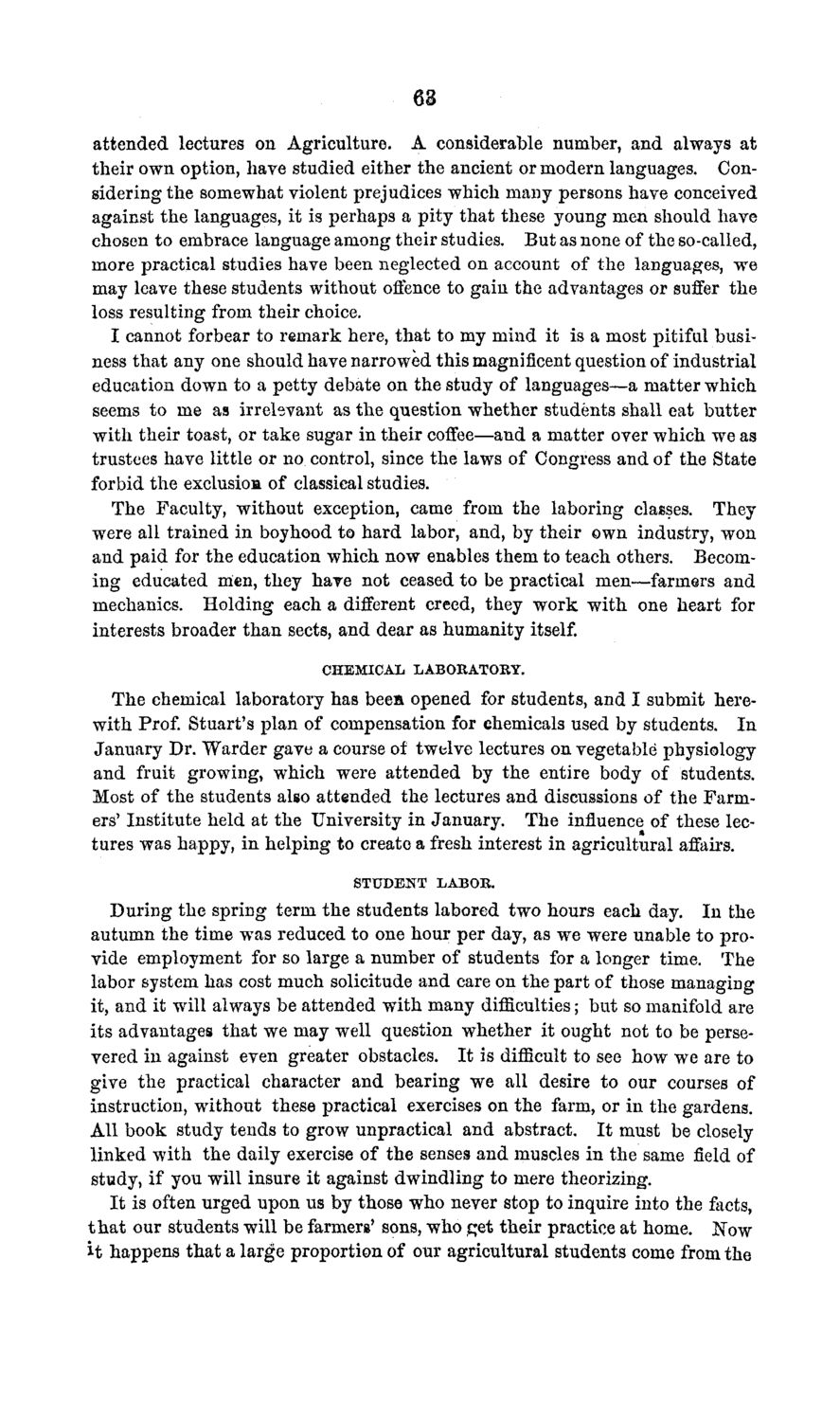| |
| |
Caption: Board of Trustees Minutes - 1869
This is a reduced-resolution page image for fast online browsing.

EXTRACTED TEXT FROM PAGE:
63 attended lectures on Agriculture. A considerable number, and always at their own option, have studied either the ancient or modern languages. Considering the somewhat violent prejudices which many persons have conceived against the languages, it is perhaps a pity that these young men should have chosen to embrace language among their studies. But as none of the so-called, more practical studies have been neglected on account of the languages, we may leave these students without offence to gain the advantages or suffer the loss resulting from their choice. I cannot forbear to remark here, that to my mind it is a most pitiful business that any one should have narrowed this magnificent question of industrial education down to a petty debate on the study of languages—a matter which seems to me as irrelevant as the question whether students shall eat butter with their toast, or take sugar in their coffee—and a matter over which we as trustees have little or no control, since the laws of Congress and of the State forbid the exclusion of classical studies. The Faculty, without exception, came from the laboring classes. They were all trained in boyhood to hard labor, and, by their own industry, won and paid for the education which now enables them to teach others. Becoming educated men, they have not ceased to be practical men—farmers and mechanics. Holding each a different creed, they work with one heart for interests broader than sects, and dear as humanity itself. CHEMICAL LABORATORY. The chemical laboratory has been opened for students, and I submit herewith Prof. Stuart's plan of compensation for chemicals used by students. In January Dr. Warder gave a course of twelve lectures on vegetable physiology and fruit growing, which were attended by the entire body of students. Most of the students also attended the lectures and discussions of the Farmers' Institute held at the University in January. The influence of these lectures was happy, in helping to create a fresh interest in agricultural affairs. STUDENT LABOR. During the spring term the students labored two hours each day. In the autumn the time was reduced to one hour per day, as we were unable to provide employment for so large a number of students for a longer time. The labor system has cost much solicitude and care on the part of those managing it, and it will always be attended with many difficulties; but so manifold are its advantages that we may well question whether it ought not to be persevered in against even greater obstacles. It is difficult to see how we are to give the practical character and bearing we all desire to our courses of instruction, without these practical exercises on the farm, or in the gardens. All book study tends to grow unpractical and abstract. It must be closely linked with the daily exercise of the senses and muscles in the same field of study, if you will insure it against dwindling to mere theorizing. It is often urged upon us by those who never stop to inquire into the facts, that our students will be farmers' sons, who get their practice at home. IsTow it happens that a lar^e proportion of our agricultural students come from the
| |